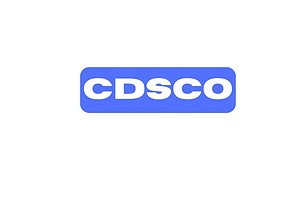Last Updated on December 22, 2024 by The Health Master
USFDA Approval
USFDA Approval: The US Food and Drug Administration (USFDA) made a groundbreaking announcement, giving the green light to Eli Lilly’s highly anticipated weight loss drug, Zepbound.
This approval marks a significant milestone in the realm of obesity treatment, offering new hope to millions of individuals struggling with excess weight.
A Lucrative Market: GLP-1 Drugs on the Rise
JPMorgan analysts foresee a promising future for GLP-1 drugs, predicting annual sales to surge to $140 billion by 2032.
Novo Nordisk and Lilly are poised to dominate this burgeoning market, with Zepbound positioned as a potential game-changer.
A New Dawn in Weight Management: Administering Zepbound
Zepbound, administered through weekly injections, targets obese or overweight individuals with at least one weight-related condition, such as high blood pressure, type 2 diabetes, or high cholesterol.
The USFDA’s John Sharetts emphasized the gravity of obesity-related health risks, highlighting the pressing need for effective interventions.
The Science Behind Zepbound: Tirzepatide’s Journey
Zepbound’s active ingredient, tirzepatide, previously known as Mounjaro, gained recognition as a diabetes control drug also manufactured by Eli Lilly.
Its dual role as a weight loss solution underscores the potential for innovative approaches in pharmaceutical research.
Clinical Triumph: Zepbound’s Remarkable Efficacy
In a rigorous clinical trial encompassing over 2,500 adults, Zepbound, when combined with diet and exercise, delivered impressive results.
Patients receiving the highest allowed dose shed an average of 48 pounds (22 kilograms), while those on the lowest dose lost 34 pounds, in stark contrast to the mere seven pounds observed in the placebo group.
Addressing a Nationwide Epidemic: The Urgency of Weight Management
With nearly 70 percent of American adults grappling with obesity or excess weight, the significance of effective weight management cannot be overstated.
Studies have shown that even modest weight loss of five to ten percent can lead to a reduced risk of cardiovascular disease, offering renewed hope for those in search of viable solutions.
Affordability Challenges: Navigating Zepbound’s Pricing
Despite its remarkable efficacy, Zepbound comes with a hefty price tag of $1,059.87 per month.
This high cost may pose a barrier for many, as insurance coverage for weight loss medications remains limited.
However, Eli Lilly assures that those with insurance can access Zepbound for as little as $25 for a 1-month or 3-month prescription.
Weighing the Risks: Understanding Zepbound’s Side Effects
While GLP-1 receptor agonists, including Zepbound, have gained popularity, recent research underscores potential gastrointestinal risks.
A comprehensive study published in the Journal of the American Medical Association (JAMA) highlights associations with severe issues such as stomach paralysis, pancreatitis, and bowel obstruction.
Unraveling the Potential Side Effects
The USFDA has identified a range of potential side effects, including nausea, diarrhea, vomiting, constipation, abdominal discomfort, injection site reactions, fatigue, allergic reactions, burping, hair loss, and gastroesophageal reflux disease.
Additionally, studies in rats have shown a link to thyroid C-cell tumors, although implications for humans remain uncertain.
FAQs
- Is Zepbound suitable for everyone struggling with obesity?
Zepbound is indicated for obese or overweight individuals with at least one weight-related condition. However, it’s essential to consult with a healthcare professional to determine its suitability for individual cases. - How does Zepbound compare to other weight loss medications on the market?
Zepbound’s clinical trial results demonstrate its efficacy, but it’s important to discuss treatment options with a healthcare provider to find the best fit for each patient’s unique needs. - What steps can individuals take to complement Zepbound treatment?
Diet and exercise remain crucial components of any weight loss journey. Zepbound is most effective when used in conjunction with a balanced lifestyle. - Are there alternatives for individuals who may find Zepbound’s cost prohibitive?
It’s advisable to explore various insurance options and potential assistance programs to make Zepbound more accessible. - What should patients be aware of before starting Zepbound treatment?
Prior to beginning Zepbound, patients should discuss their medical history and any existing conditions with their healthcare provider to ensure safe and effective use of the medication.
Disclaimer: This article contains information derived from the source mentioned below. Our team utilized an AI language model to rewrite and present the news or article in a unique format.
USFDA Approval granted for Sitagliptin and Metformin HCL Tablets
USFDA approval granted for Esomeprazole Magnesium Capsules: Granules
USFDA Approval: USFDA Approval granted for Apremilast Tablets
USFDA tentative approval granted for Apalutamide tablets
USFDA approval granted for this inflammatory bowel disease drug
USFDA Approval granted for Sitagliptin and Metformin HCL Tablets
Impact of Analgesic and Anti-inflammatory Drugs on Vulture Population
USFDA India Office Proposes USFDA – Telangana DCA Regulatory Forum
USFDA approval granted for Esomeprazole Magnesium Capsules: Granules
The Indian Pharmaceutical Industry: Pioneering Research and Development













